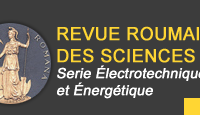Paper title: ANALYSIS OF A FULL-BRIDGE DIRECT AC-AC BOOST CONVERTER BASED DOMESTIC INDUCTION HEATER
Author(s): AVIJIT CHAKRABORTY, ARIJIT CHAKRABARTI, PRADIP KUMAR SADHU,
Abstract: Induction heating is now gradually emerging as a very reliable technology for providing faster heating in domestic and various
industrial applications. It finds profound acceptability in the appliances like domestic induction cookers regarding its
advantages of very fast heating, efficiency, accurate power and temperature control. Any induction heating system requires
three major components, a high frequency power converter, resonant tank circuit and control circuit respectively. Recently, new
research trends in the field of domestic induction heating pursue the design and implementation of new bridgeless topologies to
make efficient and cost-effective domestic induction heaters. In this paper, a highly efficient direct ac-ac boost converter based
induction heater is proposed employing a full-bridge series resonant inverter (FB-SRI) with insulated gate bipolar transistor
(IGBT) as the power electronic switch. Power requirement of the induction heater is continuously regulated using a closed loop
control system. The proposed inverter incorporates a voltage boost control technique using only two diodes for rectification of
the main supply voltage. After maintaining proper sequence of firing the IGBTs, the converter can operate with zero-voltage
switching (ZVS) during both switch-on and switch-off conditions. The performance of the proposed induction heating system is
later compared with a conventional full-bridge (FB) series resonant inverter (SRI) based induction heater. The entire analysis is
simulated using PSIM software environment.
Keywords: Induction heating, Insulated gate bipolar transistor, Switching loss, Duty cycle, Zero-voltage switching (ZVS) Year: 2019 | Tome: 64 | Issue: 3 | Pp.: 223-228
Full text : PDF (596 KB) |



